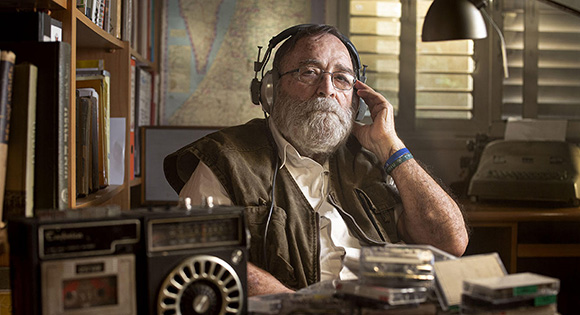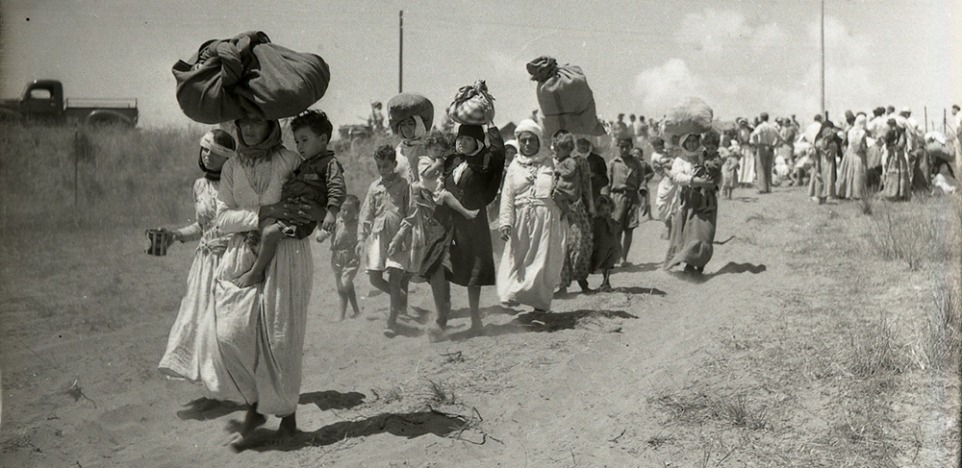Photo Credit: June 13, 1948: The expulsion of Tantura women, children and elderly from Furaydis to Jordan. The Red Cross is supervising. Photo credit: Beno Rothenberg collection. Courtesy of the Israel State Archives. All rights reserved.
“Genocide is the most extreme of all crimes against humanity,” writes Israel Charny, a psychologist and genocide scholar. In academic literature and international law this term refers to the killing of a particular national, ethic, racial, or religious group. Genocide is a severe blow to human rights, displays extreme indifference to human suffering, and signals the moral breakdown of a community.
When the state of Israel was established in 1948, hundreds of Palestinian villages were emptied, their residents made refugees. Israelis call this time the War of Independence. The Palestinians call it the Catastrophe. It was well known that the Palestinians had been forced to leave their homes, but did genocide also take place?

Teddy Katz. Photo credit: Yonathan Weitzman.
In the 1990s, Teddy Katz, an Israeli graduate student, wrote in his thesis that a large-scale massacre had taken place in 1948 in the Palestinian village of Tantura. He reported that Israel’s 33rd Battalion of the Alexandroni shot and buried in a communal grave some 40 young men. This happened after the village had surrendered. For his thesis, Katz interviewed Israeli soldiers who had been involved in the slaughter as well as some Palestinians who had been in the area.
It turned out that admitting to genocide was not something Katz’s colleagues and countrymen would do. He was labeled a liar and stripped of his academic credentials; he was even sued by some of the veterans. With this 2022 documentary, director Alon Schwarz begins with Katz’s research and re-interviews many witnesses to what happened in Tantura. Their accounts, not surprisingly, differ.
Schwarz has the advantage of having access to Katz’s audio tapes in which Israeli soldiers describe what they did on that day. When he plays some of them to the judge who handled Katz’s trial, she has to admit that they did not have all the evidence they needed.
The documentary also takes us to Tantura where a land expert points out how a mass grave could be underneath a parking lot by the sea. Members of a nearby kibbutz are split on whether or not the Israeli troops were capable of genocide. Clearly, the forces of denial are strong.
This hard-hitting documentary is a cautionary example about what can happen in war and other conflicts. We see how easy it is for people to deny any wrong-doing by themselves or those fighting on their behalf. Many of those interviewed imply that we can never know what really happened, so why not just let it go? But that is the point of such a film. We need to learn to seek the truth and resist denials, especially in our age when genocide is being preached by ideologues around the world.
